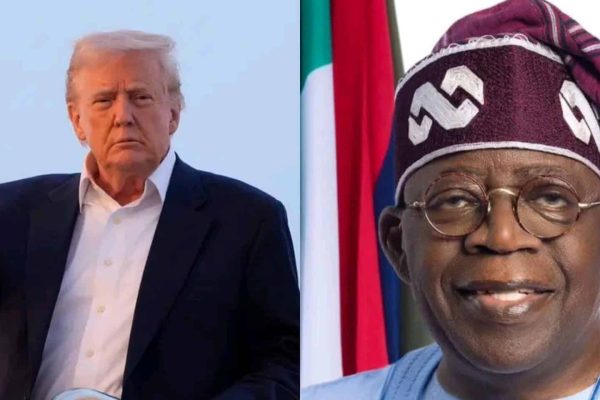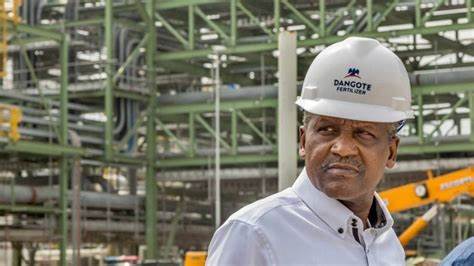- ASUU suspends strike after eight months
- Court discharges, acquits Nnamdi Kanu of terrorism charges
- Nigeria faces ban for pulling out of Beach Soccer AFCON
- Sanwo-Olu receives FG’s approval for $2.5bn Badagry deep seaport construction
- World Bank says no debt restructuring request from Nigeria
Across Nigeria’s 36 states and the Federal Capital Territory, these are the five top Nigerian news stories you shouldn’t miss:
ASUU suspends strike after eight months
The Academic Staff Union of University (ASUU) has suspended its eight-month-old industrial action conditionally, a member of the union’s National Executive Committee told Channels TV early Friday.
The union decided to suspend the strike during a meeting of its leadership that started on Thursday night and lasted into the early hours of Friday.
The meeting was called by the union to determine its next line of action after its state branches met over the Court of Appeal ruling last week.
The Court of Appeal had ordered ASUU to suspend the strike before its appeal of the ruling ordering lecturers to resume work can be heard.
Members of the union’s National Executive Committee, which comprises the chairmen of the state chapters and members of the national executive, attended the meeting at the ASUU National Secretariat in Abuja.
ASUU has been on strike since February 14 this year.
Court discharges, acquits Nnamdi Kanu of terrorism charges
On Thursday, the Court of Appeal in Abuja ruled that the Federal Government’s terrorist accusations against Nnamdi Kanu were false and that his kidnapping from Kenya to Nigeria was illegal and illegitimate.
The Federal Government’s forced rendition of Kanu to Nigeria, the Court ruled, violated all national and international laws, rendering the terrorism charges against him inadmissible and illegal.
The criminal charges brought against Kanu by the Federal Government were dismissed and overturned in a ruling by Justice Oludotun Adefope-Okojie in response to an appeal filed by Kanu.
The Federal Government lost the legal authority to try Kanu, according to the Appellate Court, because it blatantly violated his fundamental rights.
According to the Court, laws are expected to be obeyed, and the Federal Government had no justification for handling the Kanu case in an illegitimate and unlawful manner.
According to Justice Adebola, the allegations against Kanu were legally rendered inadmissible since Nigeria failed to follow the extradition procedure as required by law.
The Appeal Court further ruled that the terrorism charges against Kanu should be dropped since the Federal Government failed to specify where and when the alleged offenses levelled against Kanu were allegedly committed.
“By engaging in utter unlawful and illegal acts and in breach of its own laws in the instant matter, the Federal Government did not come to equity in clean hands and must be called to order.
“With appalling disregard for local and international laws, the Federal Government has lost the right to put the appellant on trial for any offense.
“Treaties and Protocols are meant to be obeyed. No government in the world is permitted to abduct anybody without following due process of extradition. Nigeria is not an exception or excused. Nigeria must obey her own law and that of international law, so as to avoid anarchy”, the Court held.
Nigeria faces ban for pulling out of Beach Soccer AFCON
Ibrahim Gusau’s newly elected board of the Nigeria Football Federation (NFF) has gotten off to a rough start as the nation’s national beach soccer squad will not be competing in the African Championship owing to a lack of funding.
On October 21, the African Beach Soccer Championship will get underway in Mozambique, but the Nigerian Sand Eagles will not be there.
The Confederation of African Football will also punish Nigeria for not going to the 2022 African Beach Football Championship. Nigeria could be excluded from the 2024 championship as well.
The Beach Soccer Africa Cup of Nations, dubbed Mozambique 2022, will begin on October 21, 2022, in the Mozambican town of Vilanculos.
After Nigeria dropped out, CAF released a new schedule for the competition. Now, seven teams will be competing for the tournament’s grand prize.
The three (3) teams in Group A are Mozambique, Malawi, and Morocco, whereas Group B has four (4) teams. They are Egypt, Madagascar, Uganda, and Senegal.
At Vilanculos Arena, the 2022 Beach Soccer Africa Cup of Nations will begin with hosts Mozambique, the 2021 AFCON runners-up, taking against debutant Malawi.
On October 28, the final will take place.
Sanwo-Olu receives FG’s approval for $2.5bn Badagry deep seaport construction

Babajide Sanwo-Olu, the governor of Lagos State, has been given permission to proceed with plans to erect the $2.5 billion Badagry Deep Seaport, which the Federal Executive Council, or FEC, had previously approved in August of last year.
Following the issue of the comprehensive business case certificate by the Infrastructure Concession Regulatory Commission, or ICRC, in April of last year, the approval provides the necessary legal foundation for the concession of the Badagry Deep Seaport.
The project will be constructed on roughly 496 hectares and be financed through public-private partnerships (PPP).
It is anticipated to have a minimum depth of 18 meters and quay lengths of 2,470 meters for containers, 560 meters for break bulk, and 360 meters for OSB.
The project will increase government revenue, create 250,000 new direct employment, and run under a Build, Operate, and Transfer (BOT) concession deal.
Sanwo-Olu signed a Memorandum of Understanding (MoU) with Siemens Energy Limited and the German-owned Deutsche Gesellschaft für Internationale Zusammenarbeit (GIZ) to set up an Energy Training Center of Excellence at the Government Technical College in Ikorodu. This was done after getting approval at the recently ended Ehingbeti Economic Summit in Victoria Island, Lagos.
World Bank says no debt restructuring request from Nigeria
According to the World Bank, Nigeria has not requested debt restructuring from international financial institutions beyond the Debt Service Suspension Initiative, DSSI, as permitted by the Common Framework for Debt Treatment.
World Bank President, David Malpass, revealed this in Washington, at his opening press briefing of the ongoing annual meetings of the World Bank and IMF.
However, he went on to say that any request for debt relief from Nigeria would be evaluated for viability.
The Paris Club of Creditors and the Group of 20 Most Industrialized Nations, collectively known as the G20, supported the Common Framework for Debt Treatment Beyond the DSSI (Common Framework) proposal last November in order to structurally support Low Income Countries with Unsustainable Debt.
The Common Framework takes requests from eligible debtor countries into consideration for debt treatment on a case-by-case basis. An appointment of a Creditor Committee follows a request for debt treatment. IMF and World Bank support the negotiations, in part through their Debt Sustainability Analysis.
From N12.12 trillion at the end of June 2015 to N42.84 trillion at the end of 2022, Nigeria’s public debt increased by 253 percent in seven years. Meanwhile, debt service costs ate up 114% of federal government revenue from January to April, raising concerns about the sustainability of the country’s public debt.
However, the Minister of Finance and National Planning, Zainab Ahmed, stated in a media interview on Wednesday outside of the annual meetings that the FG is also conscious of the rising cost of debt service, which is made worse by interest rate hikes and dollar appreciation, and has started talks with the World Bank, IMF, and other financial institutions on debt restructuring for Nigeria.



















